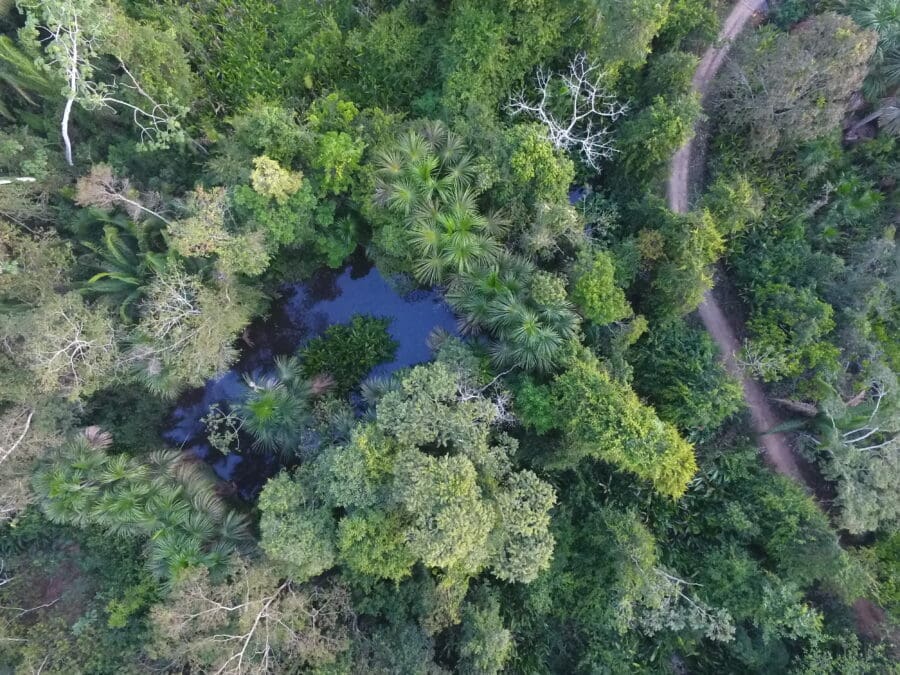A pathbreaking leader for the legal recognition of Indigenous Peoples’ rights and a former RRI Fellow.
Owen J. Lynch, an early pillar of the now global movement to legally recognize Indigenous Peoples’ and local communities’ land rights, passed away on November 14, 2024, in his beloved home state of Minnesota, US.
Owen became an internationally influential lawyer and activist after falling in love with the people of the Philippines while he was there as a Peace Corps volunteer from 1980 to 1984. He arrived in the Philippines fresh out of law school after being recruited by the Peace Corps to respond to Filipino Indigenous communities’ demands for legal assistance to secure their land rights. He subsequently earned a PhD in law from Yale University in 1988. Owen’s dissertation, which received a special distinction at his graduation, was published as a book by the University of the Philippines called Colonial Legacies in a Fragile Republic in 2011 with support from the Fulbright Program.
Owen focused on the legal history of Indigenous rights in the Philippines and his research on Native Title proved pivotal in shaping several subsequent legal and policy breakthroughs. Owen credited this experience for teaching him that “laws are rules established by the politically powerful”—a guiding philosophy that he impressed upon countless aspiring public interest lawyers and legal activists across Asia, Africa, and Latin America who he inspired and trained over his 50-year career.
Building lifelong relationships and influencing positive change
Owen and his passionate Filipino law students from the University of the Philippines College of Law, where he taught for nearly a decade, were the architects of the legal strategy to recognize Indigenous Peoples’ rights in the Philippines. Among others, they also championed a case that was eventually upheld by the Supreme Court in 2000. It was the first time in Asia that a national government legally recognized Indigenous Peoples’ territorial rights.
This pathbreaking case became a point of reference for related cases and played a crucial role in legitimizing and propelling the legal recognition of Indigenous and local community rights worldwide. Owen was also welcomed as an honorary member of the Buhid Mangyan by several Buhid Indigenous communities on the island of Mindoro, Philippines. Several of Owen’s Filipino students later established the Legal Rights and Natural Resources Center (LRC), which became a member of Friends of the Earth International. Up to the end of his life, Owen would continue to be a friend and mentor to many at the LRC.
For over 30 years in his leadership positions at the World Resources Institute and the Center for International Environmental Law (CIEL), Owen fostered, partnered with, and mentored many public interest legal organizations in Africa, Latin America, and Asia, supporting their legal strategies with advice, funding, and connections.
Remembering Owen’s scholarship and career highlights
Owen also authored numerous influential articles and books. His conceptual framework of “community-based property rights” became the standard. His critique of the United Nation’s Tropical Forestry Action Plan in his 1990 article Whither the People? Demographic, Tenurial, and Agricultural Aspects of the Tropical Forestry Action Plan catalyzed the recalcitrant forest sector to begin to reckon with their role in the ongoing history of dispossession of Indigenous Peoples and their responsibility to support Indigenous rights.
Owen also provided the inspiration and conceptual framework for the report Who Owns the World’s Forests? Forest Tenure and Public Forests in Transition published by Forest Trends and CIEL in 2002, a paper that generated wide public awareness of the significant and growing role of Indigenous Peoples and local communities. Owen was an early proponent of and inspiration for creating the Rights and Resources Initiative (RRI) and was one of three legal founders of RRI when it was established in 1995. Owen continued as an RRI Fellow, advising staff and members of the network throughout his life. In 2007 he helped establish the international Lawyers for Community Tenure network with the support of RRI.
Owen encouraged young professionals around the world. He worked with 2009 Nobel Laureate Elinor Ostrom and others to expand the International Association for the Study of Common Property (IASC) (now the International Association for the Study of the Commons) to include global activist scholars. He led the first international meeting of IASC in the Philippines in 1993 and served as IASC President in 2006–2007.
Owen and his students may be his most lasting legacy as they continue to create and defend legal frameworks that respond to the needs of communities disenfranchised by the law. Several of those he mentored in the Philippines, Indonesia, and other countries have become the most influential advocates of Indigenous rights in judiciaries, executive agencies, and international processes.
In Memoriam
Owen will be remembered not only for his long list of achievements in supporting Indigenous Peoples and other marginalized communities, but also for his kindness, generosity, and unconditional love and encouragement of others. Owen’s smile, jokes, and Irish twinkle in his eye brought joy to endless conversations, meetings, and people worldwide. In particular, the community of Fellows at the Samdhana Institute in the Philippines and Indonesia remember Owen for this joy.
One of Owen’s favorite sayings was, “It’s better to light a flame than to curse the darkness.” Owen lived by this truth and inspired many to light their own flames and fight the darkness. The world is a much better place because of Owen J. Lynch, and he will continue to inspire and guide us.
The Rights and Resources Initiative, the Legal Rights and Natural Resources Center, the Samdhana Institute, Lawyers for Community Tenure, and countless other organizations across the world are forever in his debt and are grateful to his ancestors, his family, and his friends that created him and supported him throughout his beautiful life.






